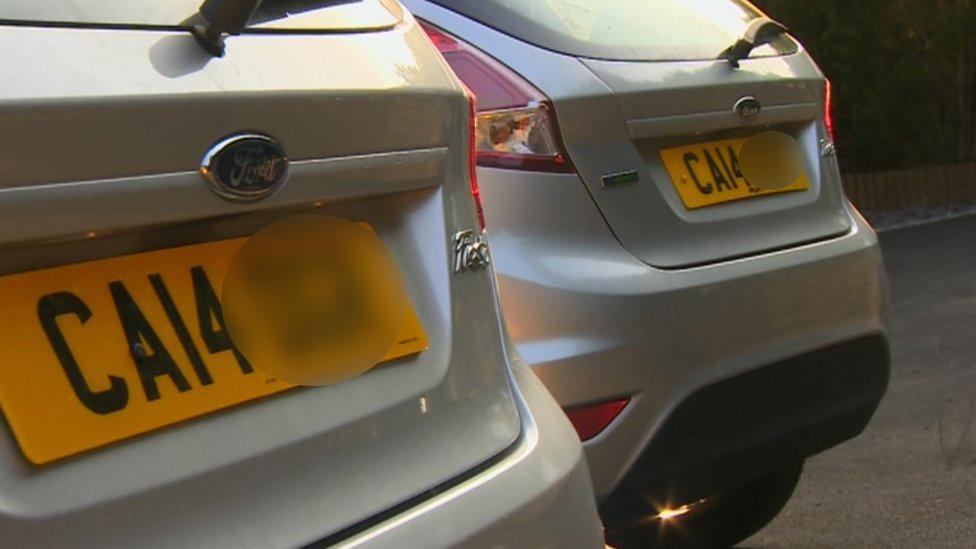Thousands hit by fines from cloned car plates
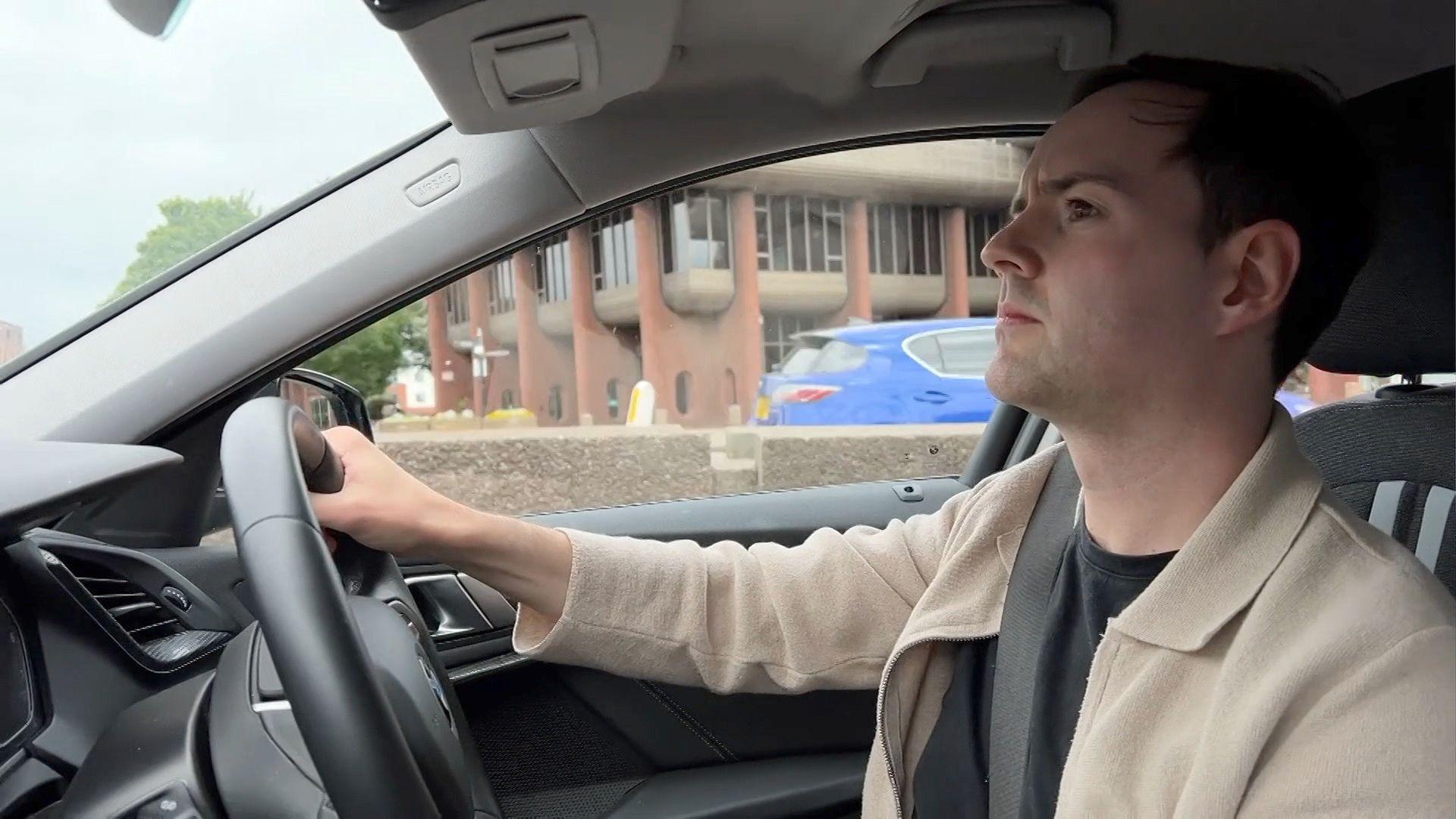
Ben King's hire car was cloned, leading to hundreds of pounds in fines for trips he did not make
- Published
Ben King was baffled when parking tickets started arriving in the post in December 2022.
He had allegedly been recorded parking in various locations across central London, racking up hundreds of pounds in fines.
But Mr King had never driven in London. On those dates, his hire car had been parked outside his house in Reading, nearly 40 miles away, and he had been one of the many victims of vehicle identity theft - known as "car cloning".
A BBC investigation has uncovered a sharp rise in penalty charge notices (PCN) cancelled due to car cloning, with the Driver and Vehicle Licensing Agency (DVLA) saying it is working with the National Police Chiefs' Council and other government departments to improve identification and enforcement of number-plate crime.
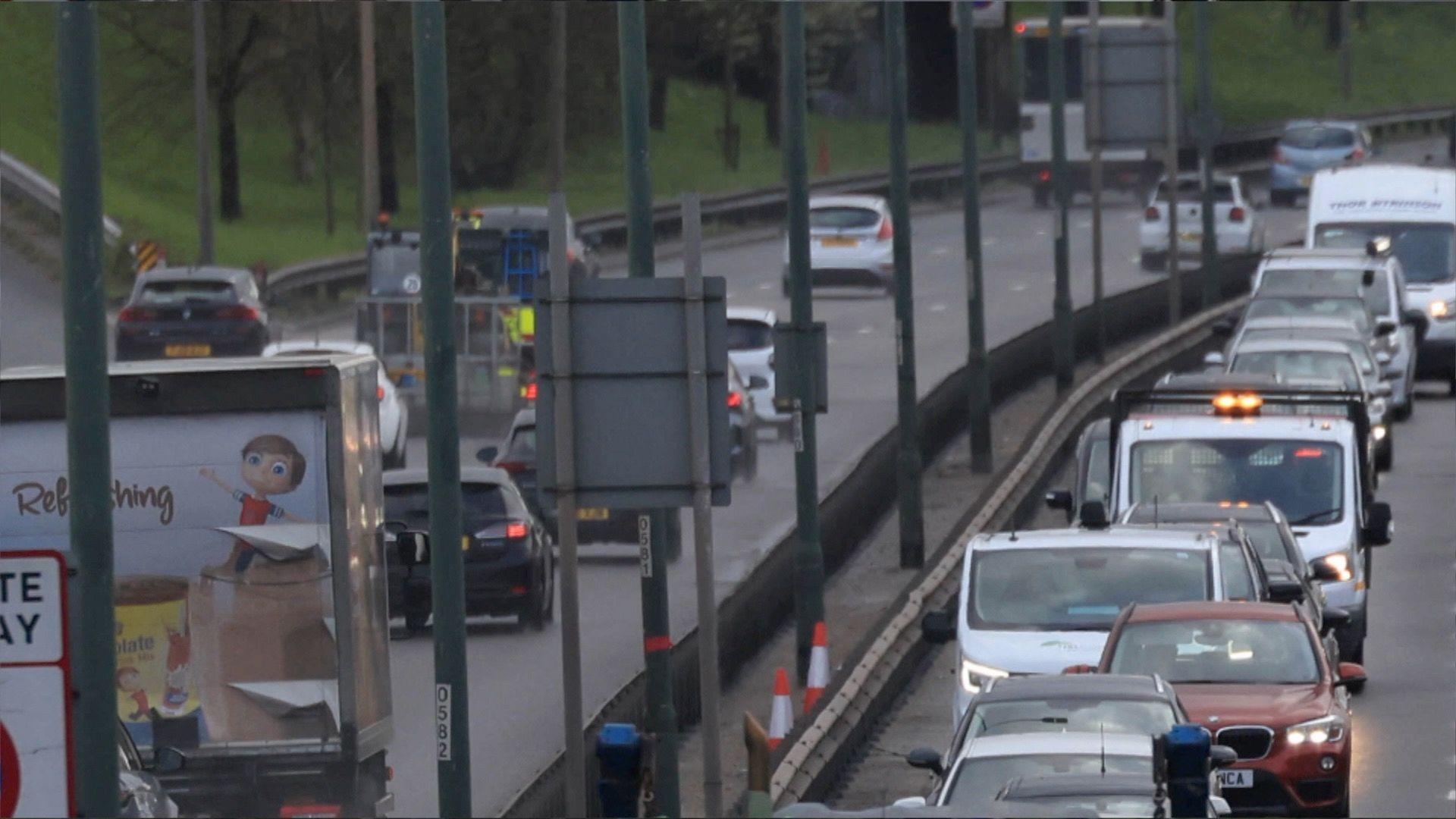
Car-cloning cases in London have surged in three years, with more than 36,000 tickets cancelled due to cloning in 2023
Car cloning involves criminals stealing or copying another car's registration plates, often choosing plates from a vehicle that looks similar to theirs.
The scam allows unscrupulous drivers to accumulate fines while the innocent owner of the original vehicle receives the penalties. Victims usually do not realise they have been targeted until fines start arriving in the post.
The BBC investigation, based on a freedom of information request sent to all London councils, revealed a 64% surge in car cloning leading to fines being cancelled over three years. It found the number of cases rose from 22,450 in 2021 to 36,794 in 2023.
Overall fines issued went up by 20% over the same period. All London councils responded, with the exception of Richmond and Havering councils.
Some councils saw more than 1.5% of all their traffic fines linked to cloned vehicles. Hackney topped the list with nearly 2% of tickets issued attached to cloned cars.
For Mr King, the ordeal spiraled into a six-month nightmare that nearly cost him £1,000 and brought threats of bailiffs to his door.
"I started getting these parking notices through from Redbridge Council, five more from the Newham Council," said Mr King. "I've never driven in Redbridge or Newham, in fact, I've never driven in London before. I always take public transport."
"It was so, so stressful," Mr King recounted. "We were up late at night, worrying about having to find a thousand pounds to pay these fines, what to do, how to appeal."
Proving innocence can be challenging for some victims. Mr King struggled to provide evidence of his innocence. "I work from home, so I didn't have any proof that I'd been to an office," he explained.
"I submitted doorbell camera footage of the car on my drive, but they wouldn't accept that evidence."
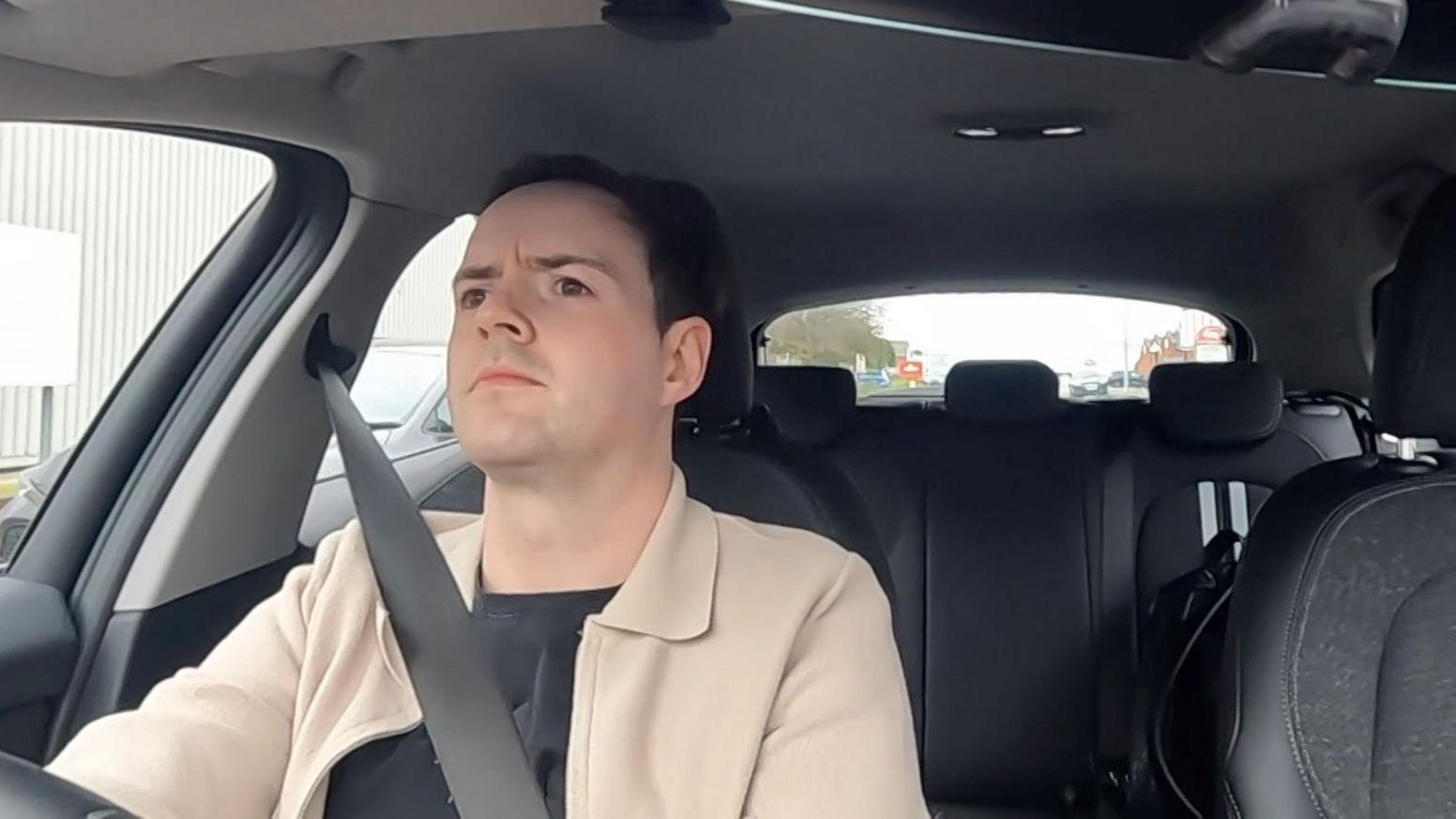
Mr King describes the six-month ordeal of fighting unfair fines and potential bailiff action due to his cloned hire car as stressful
A spokesman for Newham Council said they had "great sympathy" with those who fell victim to vehicle cloning and said the authority would always cancel PCNs when drivers were able to provide evidence.
A Redbridge Council spokesperson said: "Motorists can always appeal and challenge a penalty charge notice if they believe their vehicle number plate has been cloned.
"In Mr King's case, he failed to provide the necessary evidence to support the claim that his vehicle was cloned."
Ulez expansion: A driving force behind car-cloning surge?
The surge in car cloning is particularly evident in the context of London's Ultra Low Emission Zone (Ulez), a controversial scheme charging for high-emission vehicles to be driven in the capital. It was expanded last August to include all of outer London.
A freedom of information request to TFL revealed a 69% increase in Ulez fines being cancelled due to cloning in the five months following the zone's expansion, which one expert believes may suggest more criminals could be using cloned plates to avoid charges.
Prof Jonathan Grigg, an expert in pediactric respiratory and environmental medicine at Queen Mary University of London, who is also a member of the UK Committee on the Medical Effects of Air Pollution, noted what he assessed to be a clear link between the Ulez expansion and the figures obtained by the BBC.
"There is a moderate and significant correlation between the two variables for the years," he stated.
“It likely that the introduction of Ulez has increased the number of cloning activities across London. One would imagine that people are trying to avoid paying the Ulez charges by cloning their plates.”
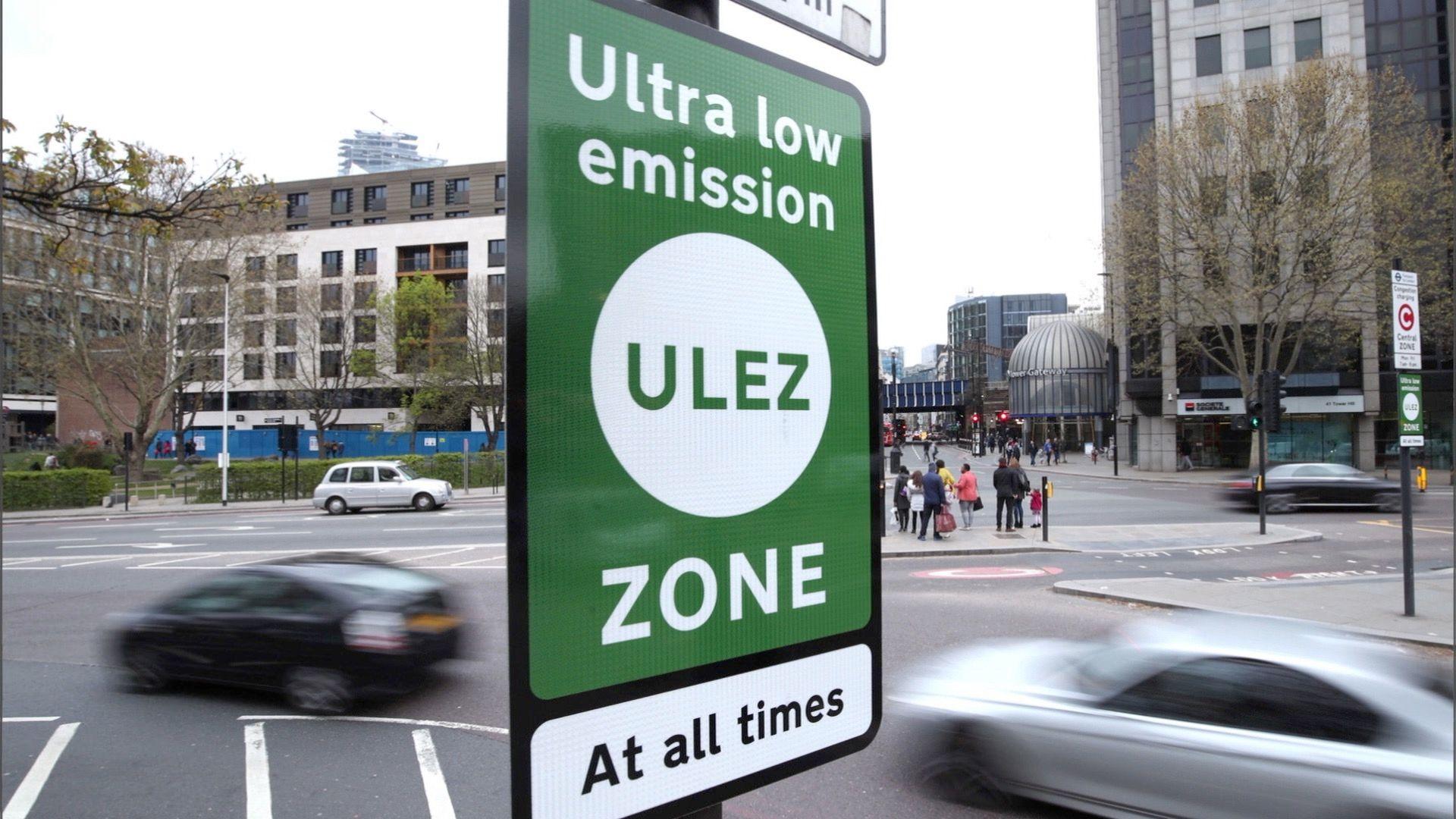
Experts suggest there may be a link between the expansion of London's Ulez and a 69% increase in cloning-related fine cancellations
The ease of obtaining fake plates is alarming.
BBC London successfully ordered a plate from a UK-registered supplier online on Amazon, without providing any proof of ownership, receiving it within two days.
Rob Laugharne, chair of the British Numberplate Manufacturers Association (BNMA), warns of a growing crisis in traffic enforcement.
He describes the current situation as a "wild west," with compromised integrity of vehicle identification systems as a result. Mr Laugharne highlights the increasing prevalence of Ulez zones and reliance on remote policing as exacerbating factors.
"It's a huge problem because that is the only way we're able to remotely monitor mobility in society," Mr Laugharne says, emphasizing the wide-ranging impacts of fake number plates on policing, counter-terrorism, and various systems including the Ulez.
As car cloning continues to rise, Mr Laugharne believes the problem has grown beyond the DVLA's current capabilities. He suggests the issue is "out of control", likening it to a horse that has "already bolted", and fears the DVLA is "burying their head in the sands."
'Targeting criminality'
The DVLA, when approached for comment, said it was working with the National Police Chiefs' Council and other government departments to improve identification and enforcement of number-plate crime.
It emphasized that UK number-plate suppliers must be registered with the DVLA, as required by the Vehicle Crime Act 2001, and that they must collaborate with law enforcement to investigate and prosecute non-compliant suppliers.
In response to the data revealing an increase in car-cloning fines being cancelled, the Metropolitan Police said: “The Met has been working to target high-risk areas of criminality where cloned plates are in use.
"This activity is a combination of intelligence-led initiatives and responding to reported incidents from vehicle owners.
“In the year from June 2022 to June 2023, 464 cloned vehicles were identified, resulting in 217 arrests or other positive action being taken."
Transport for London, which oversees the Ulez, said in response to the suggested increase in car cloning following the zone's expansion: "Vehicle cloning is a criminal matter, which the police enforce and prosecute.
"Such cases are a small proportion of all penalty charge notices.
"Since 2020, 0.4% of PCNs have been cancelled due to cloning, and this has remained stable."
A spokesperson added: "TfL’s policy is for no PCN to progress after evidence of vehicle cloning has been provided.”
With extra reporting by Stephen Menon
If you have anything else you'd like BBC London's investigations team to look into, get in touch, in confidence on:
londoninvestigationsteam@bbc.co.uk
Listen to the best of BBC Radio London on Sounds and follow BBC London on Facebook, external, X, external and Instagram, external. Send your story ideas to hello.bbclondon@bbc.co.uk, external
- Published15 December 2022
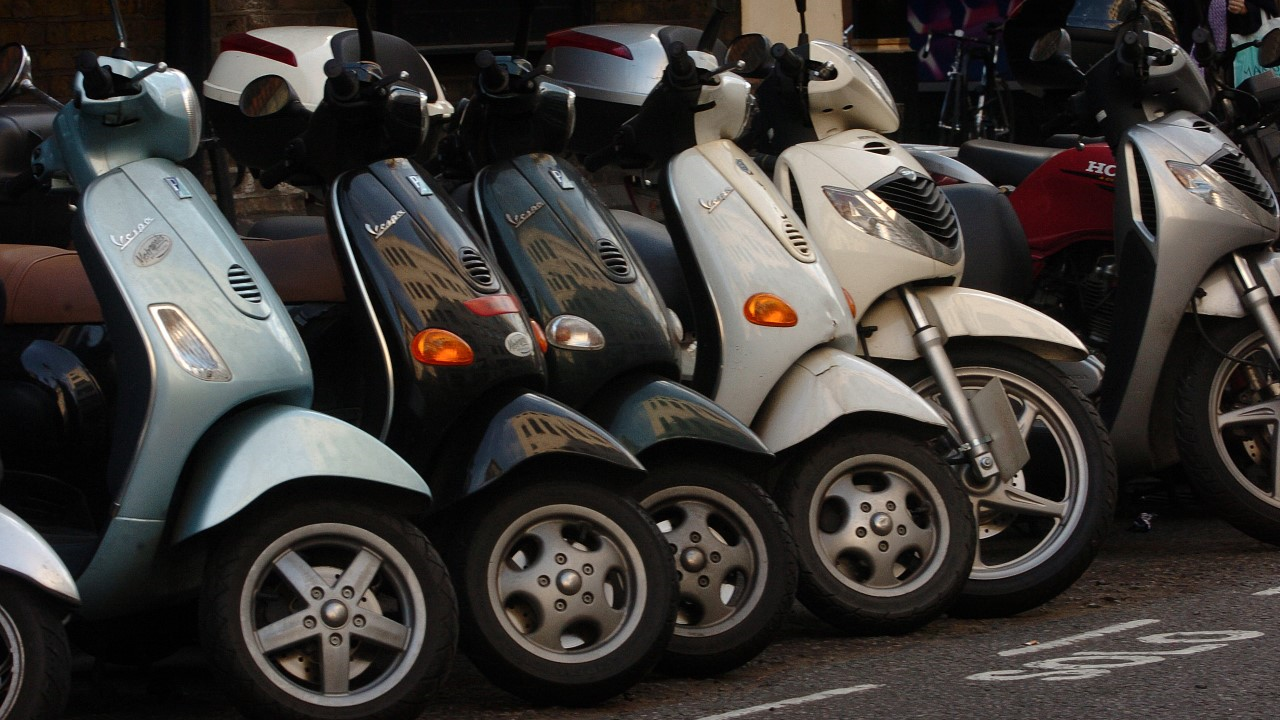
- Published10 September 2018
